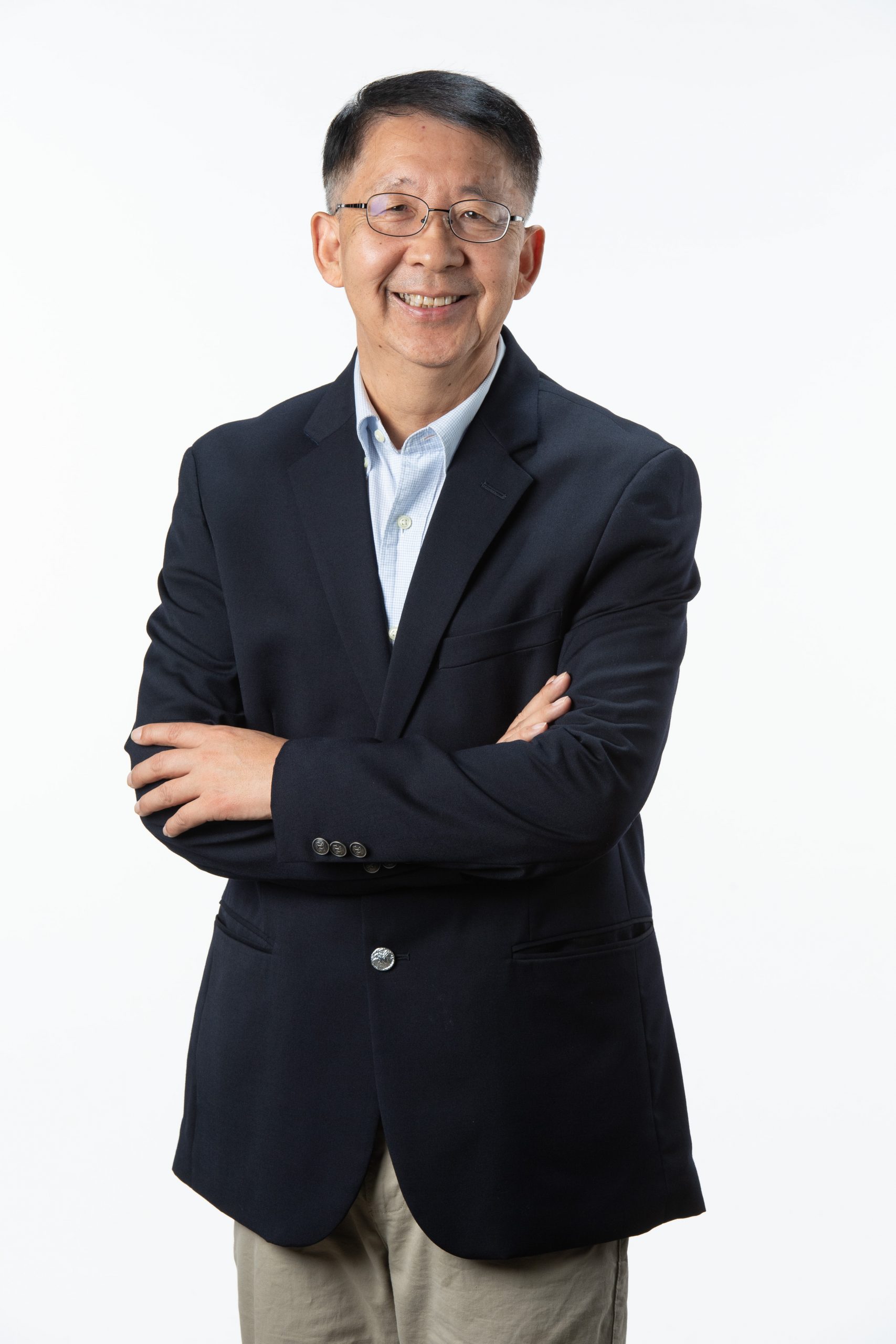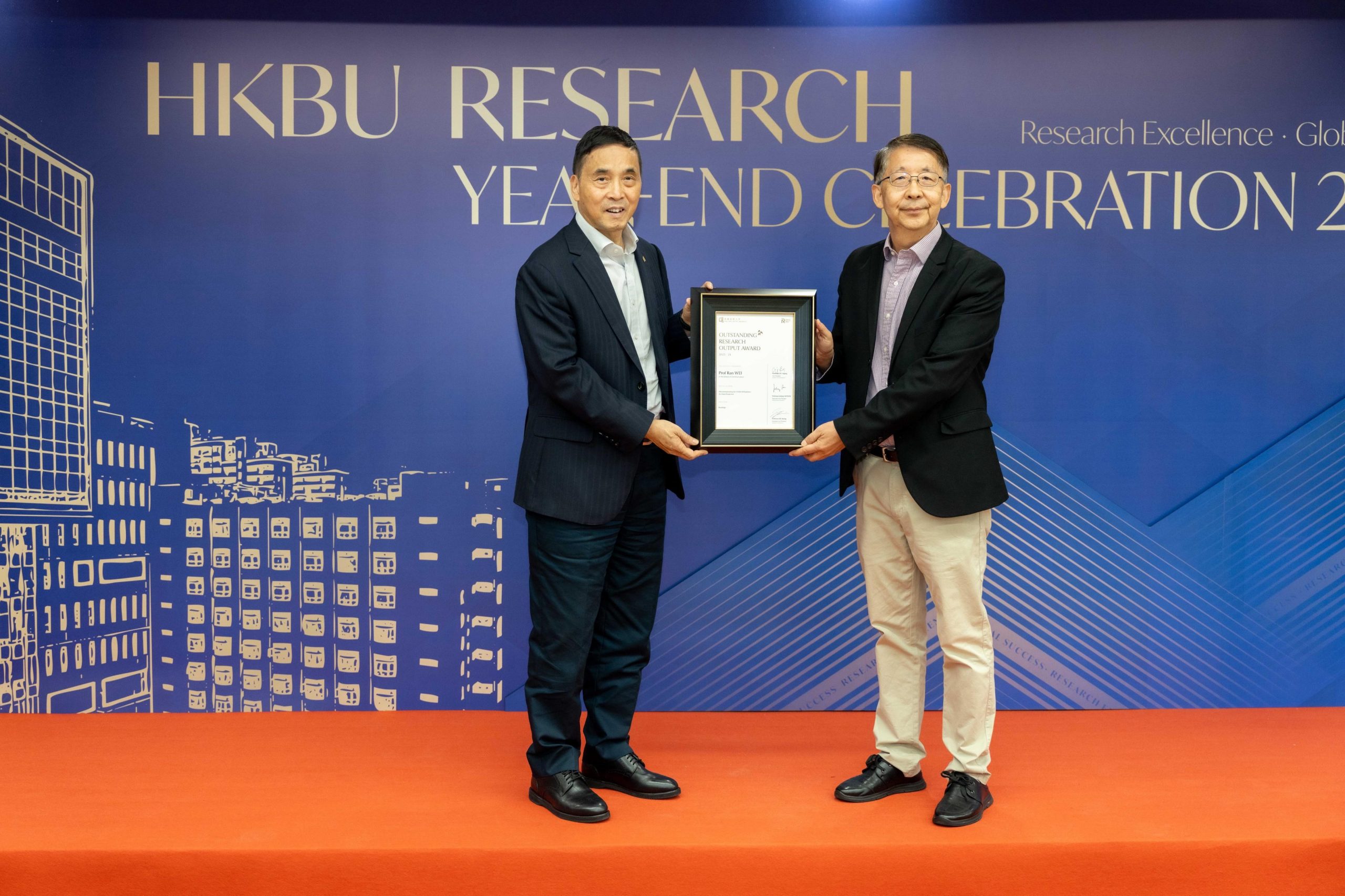Published: 2025-03-31
For the past three decades, Ran Wei’s scholarly pursuit has been grounded in the psychology of mass media effects, social change, and cognitive bias, as well as the dynamics of new media influences in Asian societies. His intellectual curiosity on the perceptual influences of media technologies is evident in his 10 books, edited special issues, numerous book chapters, and highly cited journal articles.
In recognition of his scholarly contributions to the field of communication, Wei was inducted as a Fellow of the International Communication Association at ICA’s annual conference in 2022, a status granted exclusively to distinguished scholars who made significant contributions to the field. His ranking among the world’s top 2% most-cited scientists by Stanford University for two consecutive years (2023 and 2024) further attests to his standing as a leading scholar in the field. In December 2024, Wei was awarded the 2023/2024 Outstanding Research Output Award by the Research Office of HKBU for his latest book, ‘Miscommunicating the COVID-19 Pandemic: An Asian Perspective (Routledge 2023).
Wei earned his bachelor’s degree in English Literature and International Journalism from Shanghai International Studies University. He then obtained his master’s degree from the University of Wales, followed by a Ph.D. from Indiana University, Bloomington. Wei’s career started in journalism, where he worked as a news reporter and producer at China Central Television. After transitioning into academia, Wei has been a professor or visiting scholar at universities across Asia and the United States, including Shanghai Jiaotong University, Nanyang Technological University, Chinese University of Hong Kong, and University of South Carolina, USA.
 |
Ran Wei |
Before joining Hong Kong Baptist University (HKBU) in 2023, Wei taught at the Chinese University of Hong Kong’s School of Journalism and Communication. There, he served as the Director of the Centre of Chinese Media and Comparative Communication Research (C-Centre) and the Founding Director of the Virtual Reality Lab.
Currently serving as Chair Professor and Associate Dean (Research and Development) at HKBU’s School of Communication, Wei continues to explore emerging communication technologies and their broad influence, both pro-social and undesirable, on users, media industries, and society. His recent article, “An Unhelpful Chain: Antecedents and Consequences of COVID-19 News Avoidance in China and Singapore” published in Journal of Broadcasting and Electronic Media examines the key factors accounting for news avoidance about COVID and vaccine mistrust in China and Singapore.
In a discussion with CMCR, Wei shared insights about his research and his latest book and shed light on the different intervention strategies that can be employed to counter misinformation.
Q: Could you share with us your research journey throughout the years?
Over the years, I have studied new communication technologies and media of social significance, focusing on the implications of media use on human information-seeking, psychological, utility, and entertainment needs, especially within Asian societies. For instance, one of my most cited papers ‘Staying connected while on the move: Cell phone use and social connectedness’ published in New Media and Society in 2006 explored how Taiwanese college students used cell phones to strengthen family bonds, expand their psychological neighbourhoods, and facilitate symbolic proximity to the people they connect with. My research also includes trending technologies like virtual reality, health communication and misinformation. In the last five years, I’ve been working extensively on the spate of health misinformation in Hong Kong, Taiwan, and Singapore.
 |
Ran Wei (r) receiving his Outstanding Research Output Award |
Q: Your most recent book, ‘Miscommunicating the COVID-19 Pandemic: An Asian Perspective’ won the Outstanding Research Output Award by HKBU’s Research Office of HKBU. Tell us more about the book.
The book is a culmination of my extensive career researching media effects. It is the product of a HK$3.07 million Collaborative Research Fund (CRF) project, generously supported by the Research Grant Council (RGC). This project is the largest of its kind in communication research in Hong Kong. Together with my 7-member team, we aimed to unravel the complex nature of misinformation during the COVID-19 pandemic. Our focus was on how misinformation spreads and how it is processed in Hong Kong, Mainland China, Singapore, and Taiwan—four culturally similar Chinese societies with distinct socio-political systems and digital information environments.
The book underscores the dual roles of citizens as both consumers and disseminators of misinformation, as well as their efforts to combat it. Our analysis revealed that factors such as education, information accessibility, media usage, and social network size can either facilitate or hinder the spread of misinformation. Additionally, my team and I examined the causal chain, exploring how exposure to misinformation influences individuals’ attitudes toward vaccination through their trust in government. We discovered that misleading and factually incorrect information contributed to vaccine hesitancy in the four Chinese societies.
Overall, this book illustrates the multiple roles that individuals played during the pandemic and captures the interactive dynamics of crisis communication among the government, the media, and the public.
Q: What intervention strategies does your book offer to combat misinformation, specifically to counter health misinformation?
In the book, we propose media literacy education, civic participation, and media infrastructure improvements as strategies that can enhance the free flow of accurate information in a rapidly changing media environment. A solid investment in media literacy education will significantly enhance the public’s ability to discern the accuracy of information, effectively reducing the spread of false information. Additionally, we highlight the need for infrastructure improvements in media systems, including hardware and software updates, to facilitate the dissemination of accurate information. We also recommend the creation of spaces for public deliberation where debate is encouraged to promote critical thinking.
I believe that these recommendations, among others proffered in the book, are valuable for policymakers and stakeholders to effectively respond to misinformation in potential future public health crises. On an individual level, it is crucial for media audiences to cultivate and sustain a healthy personal information diet. This involves being discerning about the information they consume and the sources they engage with, minimizing exposure to sensational and misleading media content, and limiting the amount of information consumed on social media to prevent information overload.
Related Publications
Wei, R., & Lo, V. H. (2006). Staying connected while on the move: Cell phone use and social connectedness. New media & society, 8(1), 53-72.
Wei, R., Lo, V. H., Huang, Y. H., Dong, D., Liang, H., Huang, G., & Wang, S. (2023). Miscommunicating the COVID-19 Pandemic: An Asia Perspective. Routledge.
Wei, R., Lo, V. H., Guo, J., & Yu, W. (2024). An Unhelpful Chain: Antecedents and Consequences of COVID-19 News Avoidance in China and Singapore. Journal of Broadcasting & Electronic Media, 68(5), 694-713.